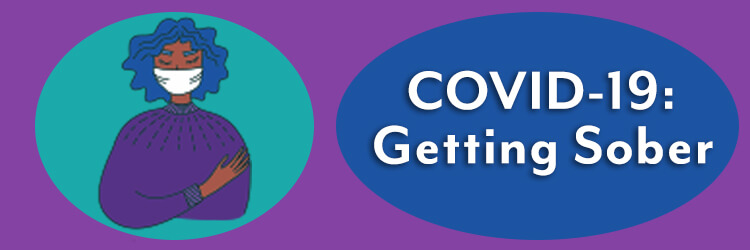[vc_row][vc_column][vc_column_text]I know a couple people who got sober only months before the pandemic hit the US. As someone with nearly five years of sobriety, I commend them. I have five years’ worth of recovery coping skills; still, during the pandemic, I’ve found myself relying on tools I used in very early sobriety.
Which, in a weird way, may make this an advantageous time to get sober. People often say that when you’re grieving and your whole life seems changed, it’s eerie to notice the world around you stays the same. A similar thing can be true of early sobriety. Your entire way of life changes. But the world doesn’t stop.
For many people, this is the most the world has stopped in our lifetime. When I was in early recovery, I wished the things would slow down so I could focus solely on being sober.
That said, this is not a vacation. There is heightened stress, isolation and uncertainty causing increases in addiction. At TruHealing Centers’ contact center, there has been a 20% spike in calls about alcohol. This corresponds to the numbers generally in the US, with alcohol sales rising and more people reporting drinking on the job. But it also means that more people are concerned and looking to quit.
As this article points out, people who drink to combat social anxiety may have an easier time stepping away from alcohol now. While there has been an abundance of Zoom happy hours, the pressure to drink is not the same as it is in person. Many bars remain closed. In general, a culture of partying with substances isn’t as possible over Zoom. It can happen, but it feels less inevitable.
And as writer Sarah Sheppard points out in the above-mentioned article, “For the first time ever, technology is making it easier for individuals who have social anxiety to attend AA meetings or support groups without having to actually show up in person. With online support groups, you can even turn off your video and simply watch from a safe, comfortable distance, which wasn’t an option before the pandemic.”
Many of the coping skills we need to get through the pandemic translate to early sobriety. If both are fresh for you, it may be easier to apply them.
Taking it day by day is helpful no matter where you are in your sobriety, but it’s particularly useful at the beginning. Or at least, I found it was for me, when it felt impossible to imagine going more than a day without substances. At the beginning of the pandemic, too, it felt impossible to make it through the indefinite stretch of days ahead. I kept in mind to take it day by day—but having become accustomed to life in sobriety, I wasn’t as practiced.
Another relevant coping skill is doubling down on interpersonal connection. I’ve always been a social person, but when I was first sober, I knew it was particularly important to keep up with my support system. When you’re in early recovery, you have to put in extra effort to make sure you’re not isolating.
The same is true for the pandemic, when we are limiting in-person contact and staying connected requires special effort. At the beginning of the pandemic, I reminded myself I couldn’t coast when it came to the relationships in my life.
I don’t want to minimize the difficulty of getting or being newly sober during a crisis of this magnitude. I had almost five years of practice sitting with difficult feelings before the pandemic came to the US; while that meant some early sobriety skills felt a little further away, it also meant that I had years of experience to rely on.
People who are newly sober are dealing with heightened personal stress at a time of heightened global stress. It’s a very hard time to make that kind of change—but it’s worth it. I am thankful to be sober and clear-headed during a pandemic, when I need to be vigilant in order to keep myself and my community safe.
If you are struggling with a substance use or mental health disorder during the COVID-19 crisis, there is hope. TruHealing Centers is open throughout the pandemic, with hospital-grade sanitation of our facilities and telehealth options, ensuring your safety in treatment. At our recovery centers across the country, we will help you work through traumas and build a life in long-term recovery. Call an admissions specialist at 410-593-0005.[/vc_column_text][/vc_column][/vc_row]









